An Everyday Celebration of The Scots Language
It’s a little-known fact to the rest of the world, but modern Scotland has three distinct and official verbal languages – English, Gaelic and Scots. Once the country’s primary tongue, Scots was the language of Kings and official parliamentary records, not to mention poets, playwrights and historians.
For centuries it has developed independently from its sister language English, forming thousands of unique words and grammatical features. Linguistically, this ancient tongue is no more similar to English than Portuguese is to Spanish or Danish to Norwegian, however, it finds itself notoriously misunderstood as nothing more than a local dialect.



From King to Keith
It’s estimated that half of the world’s 6000+ languages will have died out by the end of the 21st century and it was becoming clear that without any assistance, Scots might be one of the unlucky ones. Something had to be done to protect this rich part of Scotland’s heritage and that’s why the community of Keith in Moray now leads the way after being named the first Scots Toun.
The precarious journey that Scots has taken over the last 400 years is emphasised by the slogan “from King to Keith”. Travel back in time and Scots was a widely spoken language, used by nobles and commoners alike, but that all began to change after 1603.
King James VI had inherited the English crown and quickly moved his power base down to London.
The nations may have still been officially separate, but communication with the people in power became increasingly reliant on English instead of Scots. While the language held on through this difficult period, it began to be spoken almost exclusively by the common people. It came to be considered an inferior language, something to be stamped out or cured through education. Scots seemed doomed to disappear more with every passing generation.
Fortunately, no amount of bias or misguided education could rid Scotland of its heritage. It might not have been used on official documents anymore, but people stayed fiercely protective of Scots and it could still be heard spoken daily in the streets. It was the ordinary people who saved their language from extinction, along with the work of one extraordinary poet.
Scotland’s Beloved Poet
By the 18th century, lists of Scots words had been compiled as examples of what Scottish authors should avoid so that English readers would better understand their work. The legendary poet Robert Burns, proud of his humble roots, bravely ignored all advice to make his work more accessible by writing in English. Much of his success came from his ability to connect with the everyday people of Scotland through both his subject matter and his Scots words.
Inspired by earlier poets like Robert Fergusson, Burns’ use of Scots in turn inspired dozens of Scottish wordsmiths and had an enormous impact in halting the decline of the language. His efforts can’t be overestimated and there’s a very good reason that much of the country still comes together to sing and recite his poetry every year on Burns Night.
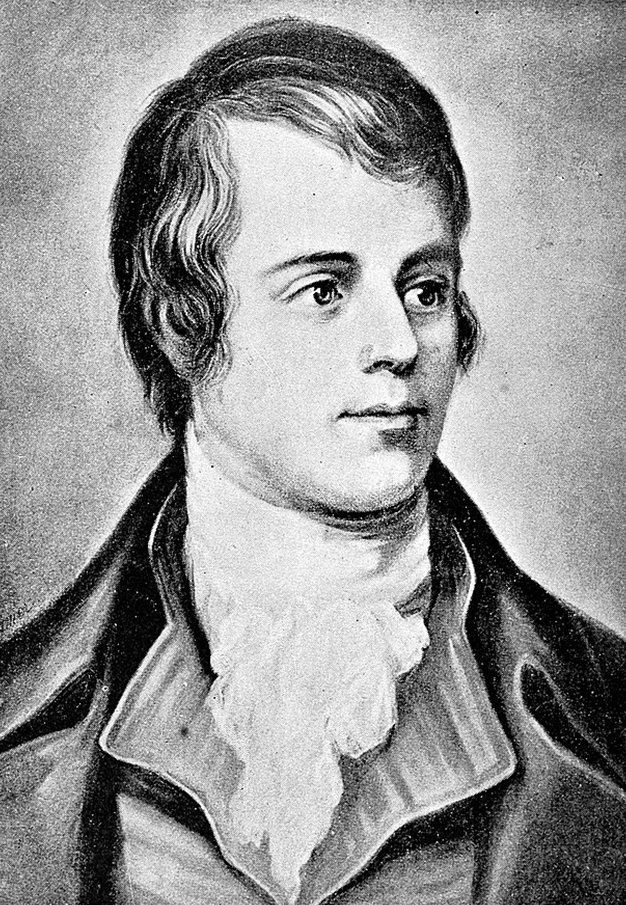
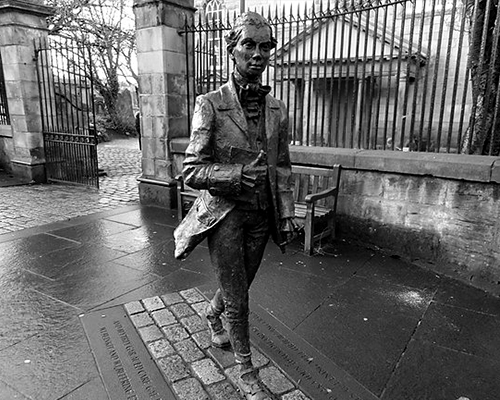
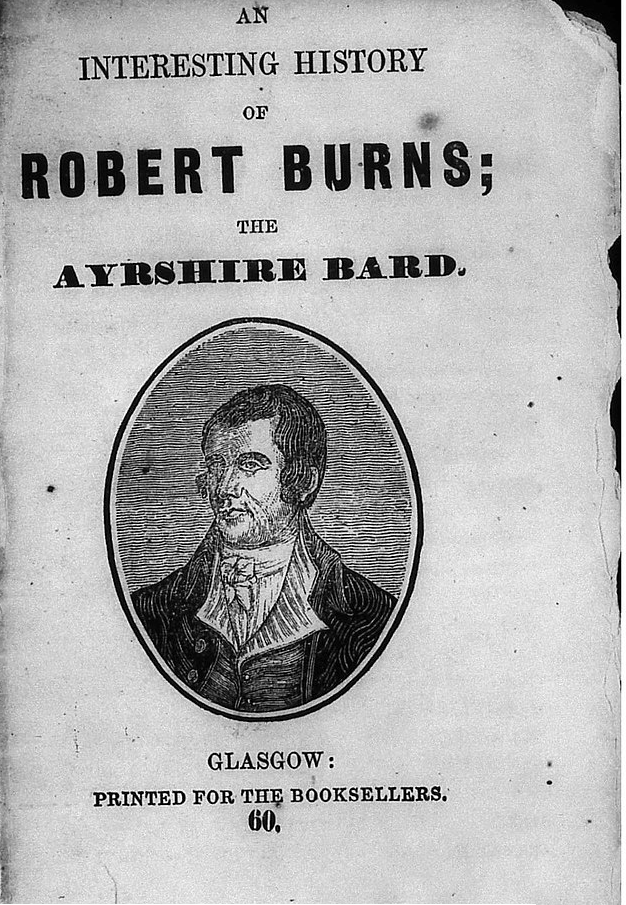
In the years since Burns, the use of Scots continued to come under immense pressure, slowly declining as speakers faced regular ridicule. Despite all of this, according to the 2011 census, there are still over 1.5 million speakers in Scotland. That makes Scots the largest minority language in Europe and much more than something to be used once a year just to address haggis or mice.
The Scots Toun
That same census indicated that almost half of Moray’s population were Scots speakers, something that wouldn’t have surprised the people of Keith. When the Scottish Government and Scots Language Centre announced plans to name the very first Scots Toun in 2014, Keith was always going to be a prime candidate. It has a strong linguistic and artistic tradition, but the community still had to show how the language was used amongst young people and the ways it is valued and celebrated in the town.



While the bid was submitted by Keith Community Council, Keith also has in its town centre, a shop appropriately named Mither Tongue. Calling this a shop is doing it an injustice though, it’s much more than just a commercial entity. This is a significant cultural hub, an institution that carries out essential work to promote the Scots language in Keith and the wider Moray area.
A host of local people and organisations as well as the school were involved and crucial in ensuring the town’s success. Winning the title of Scots Toun doesn’t mean that Keith can rest on its laurels, the job of promoting Scots is by no means over. Mither Tongue leads the way with its collection of literature as well as allowing passers-by to hear Scots poetry recited from its windows. There are even plans for permanent, physical reminders of the town’s special status to be erected in the form of statues.
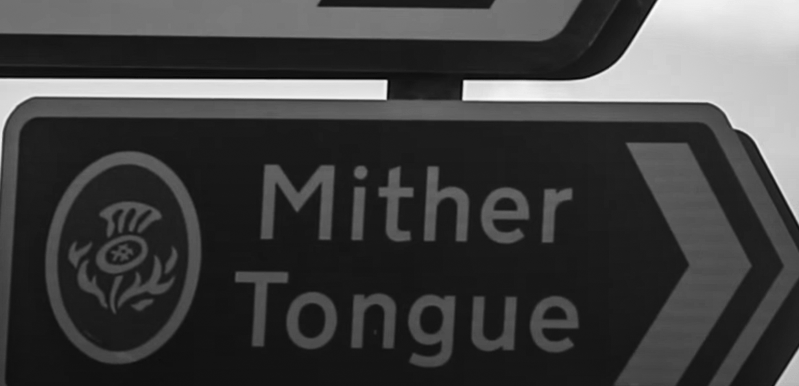
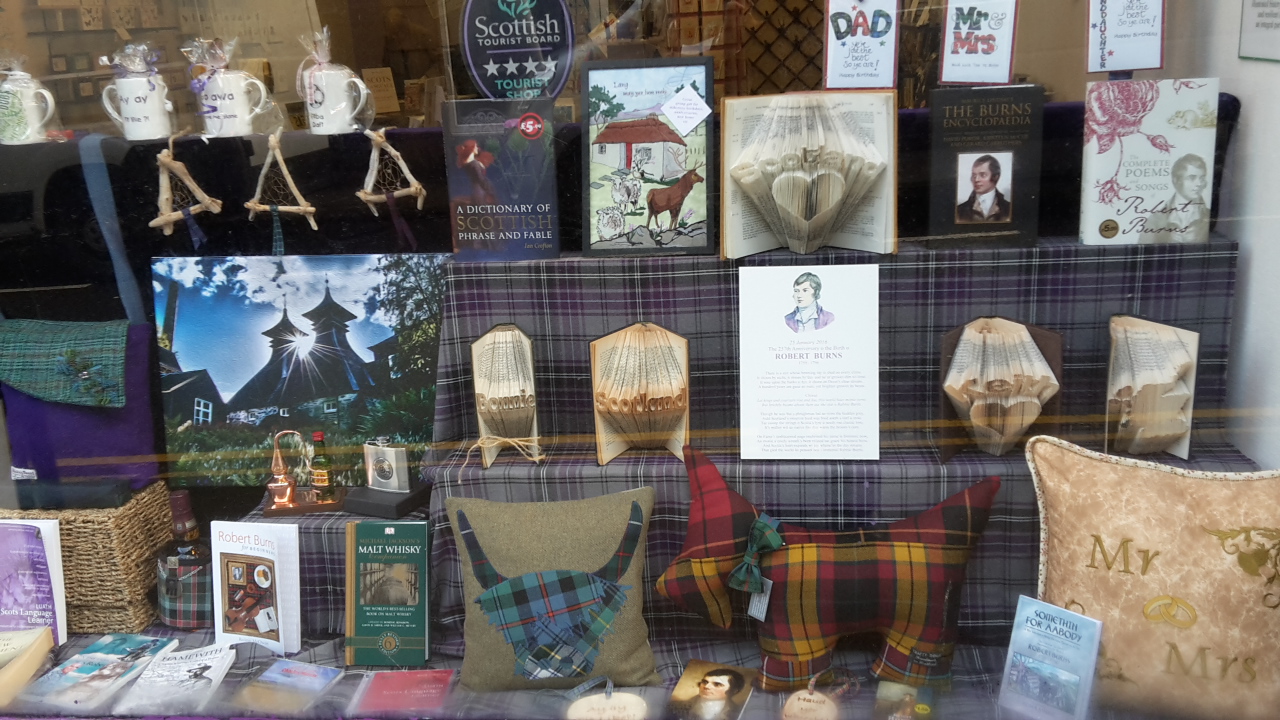
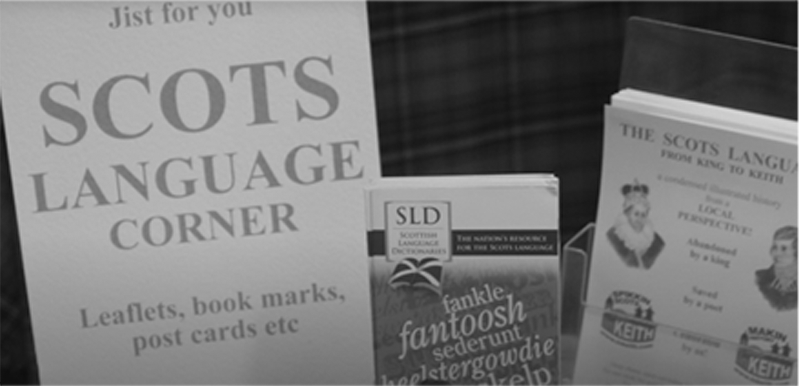
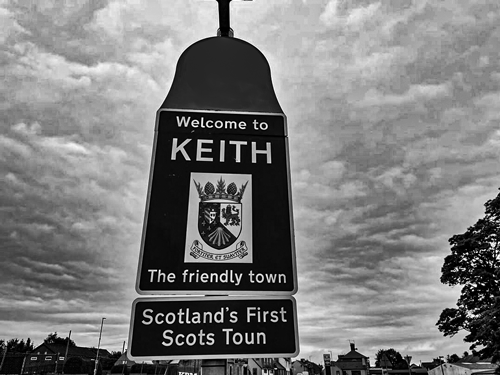
The Future of Scots
Against all the odds and thanks to the pioneering efforts of places like Keith, the Scots language has clung on and is growing again in popularity and use. Today, Scots is spoken by many on a sliding scale. Sometimes it’s just a word thrown into a sentence like wee or dreich, occasionally it’s a popular phrase such as “hud yer weesht”. Often people don’t even realise that the words they’re speaking are Scots, but that’s now starting to change with increased recognition.
Scots has seen some dark times since the days of King James and if it wasn’t for iconic people like Robert Burns standing up for the language, then we might not still be speaking it today. To ensure this rich part of Scotland’s heritage survives, we need more proud Scots Touns like Keith, supported by organisations like Mither Tongue to pick up the torch and carry it on.
Clearly, this historic language is alive and well in Moray and whether you’re fluent or not, one thing is for sure: Scots is an awfy braw leid.
